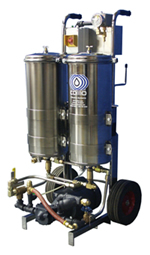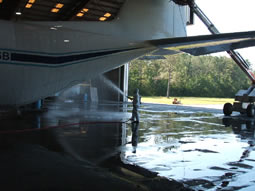
PROBLEM: Customer has been washing and stripping paint from aircraft at this Lake City, FL facility for many years. When an aircraft is being stripped and/or painted, the wash process is a critical component affecting profitability and delivery schedules. It currently takes as long as a week to process a single batch of stripper water. Additional waters can't be processed until the batch of stripper water is gone.
The customer had obtained a contract to strip 16 additional C-130 aircraft in a short period. With their routine aircraft stripping operations, water storage was often an issue. With this additional work, scheduling of the reaction and storage of the process water were going to become major issues. To fulfill this contract in a timely manner, our customer needed to reduce the time to treat this wastewater as well as increase the flexibility of the wastewater process.
They invited JDI, Inc. to review their current wash, strip, and wastewater treatment process with short range goals of:
- Meeting customer's new aircraft stripping time line,
- Reducing treatment water volumes
- Reducing treatment times
- Helping address customer's newer "Green" goals of reducing total water volume and recycling where possible.
PILOT STUDY: A pilot study was conducted to see if the temperature of wastewater could be reduced without adversely affecting the chemical reaction of the treatment. With a temperature drop, additional peroxide could be added to the process, speeding up the reaction. Since dry ice can be produced at the plant, we decided to see if dry ice could be used to chill the stripper water and not affect the reaction process.
SYSTEM RECOMMENDATIONS: JDI, Inc. provided detailed recommendations with cost estimates for reducing the volume of wastewater processed, decreasing the volume of water used, and making the washing painting/stripping process more efficient. We divided the recommendations into three categories:
- Wastewater Piping Recommendations
- Wastewater Treatment Recommendations
- Minimizing Water Usage and Recycling Recommendations
Many of these recommendations are intended to be short-term actions that can be implemented quickly but most of them should have long-term benefits.
SOLUTIONS: Customer was able to implement most of the short-term recommendations, which allowed them to meet their additional contractual obligations in a timely fashion. They are presently working on some of the long-term recommendations.

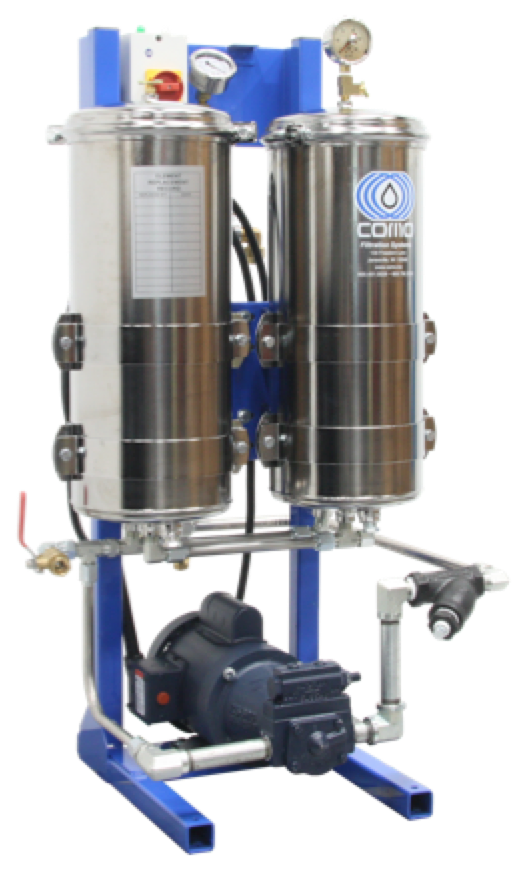 Major Aviation Engine Manufacturer Case Study
Major Aviation Engine Manufacturer Case Study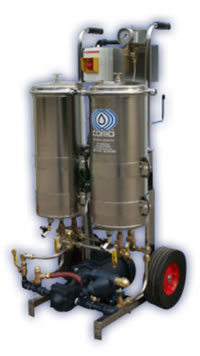 Cutting Oil
Cutting Oil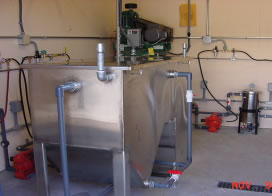 Case Studies - Heavy Equipment
Case Studies - Heavy Equipment
